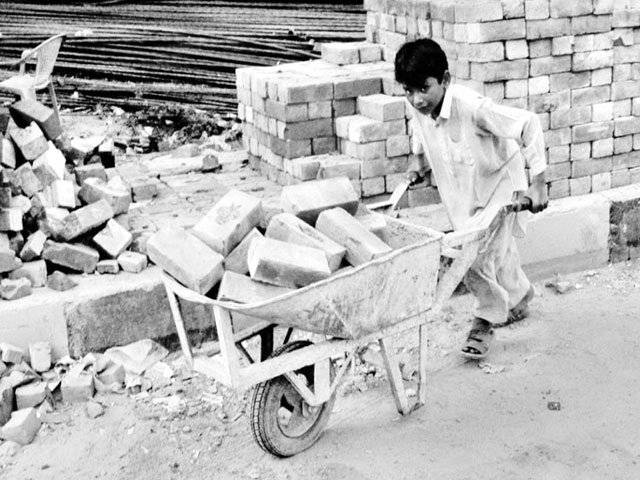Children less than fifteen years of age are made to do work, which is physically or mentally harmful, and interrupts their education and social development. In many societies like Pakistan, a significant number of children participate in economic activities and contribute substantially to household income. There is a wide range of economic activities performed by children aged 5-14. According to International Labour Organization survey, 8.3% of the 40 million children between the ages of 5-14 are child labour. Some children may just help parents in house-keeping; some may sell newspapers or cigarettes in the streets, while others may work in formal and informal establishments. So far, the extent of participation of those children has not been well-documented. The worst category of child labour relates to those children who are lured by criminals and exploiters who by offering money or through deception, get them involved in criminal activities such as prostitution, drug trafficking, or bonded labour. Of course, poverty is the main cause of child labour. It jumped from 23.9% to 37.5% in last three years because of economic crisis in Pakistan. Poor parents, who are old or do not have enough income to feed family members, send their children to work. Such children get minimal amount just to eke out a living. The consequent denial of education to these children extends poverty to the next generation. Other factors may exacerbate this vicious cycle; for example; schools in poor countries are often inaccessible or prohibitively expensive, with inadequate teaching staff and classroom resources. Cultural pressures also undermine the perception of the long term value of education, especially for girls. A number of national or international laws prohibit child labour, or regulate the working conditions of child and adolescent workers. Broader human development effort could play a vital role to change this dismal state of affairs. The struggle to end child labour shares common ground with poverty reduction programmes. Therefore the government and the civil society should make coordinated and concerted efforts to achieve the objective. MOHAMMAD JAMIL, Lahore, February 9.
Sunday, April 28, 2024
Child Labour in Pakistan

Lesco detects 75,276 power pilferers in 222 days
7:48 PM | April 28, 2024
PM Shehbaz calls for global health equity, climate resilience at WEF
7:47 PM | April 28, 2024
Foreign Minister Ishaq Dar appointed Pakistan's deputy prime minister
7:46 PM | April 28, 2024
Ashrafi vows to provide best facilities to Hajj pilgrims
7:45 PM | April 28, 2024
Security forces kill two terrorists in DI Khan
7:44 PM | April 28, 2024
Eyes On the PM
April 28, 2024
Track & Trace
April 28, 2024
Solar Siege
April 28, 2024
Political Tightropes
April 27, 2024
Wave of Revolution
April 27, 2024
Border security
April 28, 2024
Cinema – a Catalyst for Change
April 28, 2024
Korangi’s challenge
April 27, 2024
US double standard
April 27, 2024
Political turmoil
April 27, 2024
ePaper - Nawaiwaqt
Advertisement
Nawaiwaqt Group | Copyright © 2024





